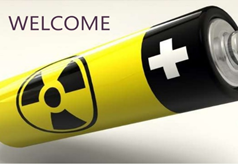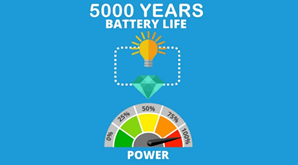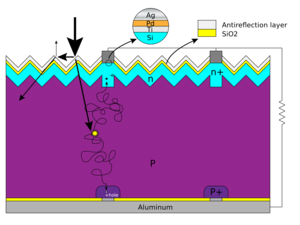Batteries from Nuclear Waste – Is it possible?
Nuclear Batteries? Yes, you heard it right. Researchers at the University of Bristol have used graphite, the waste product of nuclear reactors, to develop a man-made diamond which produces electricity when placed in close proximity to a radioactive source. Although these batteries produce only a small amount of current, they offer an incredibly long battery life of thousands of years.
To prove the feasibility of the technique, the research team has designed a prototype nuclear battery using a nickel isotope, nickel-63, as the radioactive source. However, they are planning to use carbon-14 in their future designs


Prototype Characteristics
Voltage – 2 V estimated (Ni-63 1.9 V measured)
Energy – 15.8 MJ over first 5,000 years, or total of 4.4 kWh
Prototype size – 10 mm × 10 mm × 0.5 mm (plus electrodes)
Temperature – physically stable at 750 °C
The source of these values is unclear

Fig: Diagram of solar cell direct energy conversion. The nuclear battery works the same way except that the electron-hole pairs are created by α or β rays, either directly through impact or indirectly by means of light emitted by a phosphorescent layer.
A short video clip on nuclear batteries! - https://youtu.be/b6ME88nMnYE


